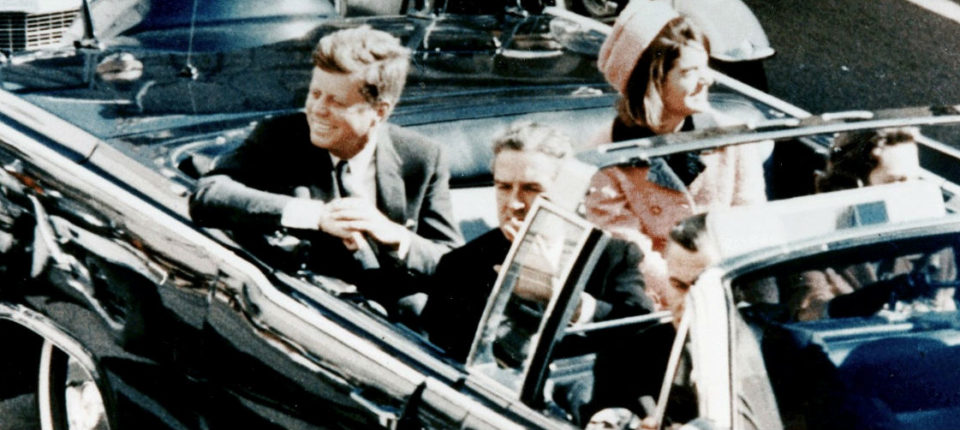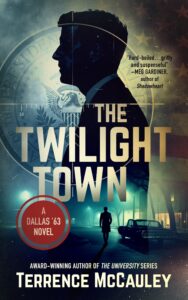America is a relatively new nation compared to other countries around the world. For all of our many faults, we still have a young country’s mindset. We’re restless for progress. We look to the future rather than dwell on the good and bad of our nation’s past.
There are some rare exceptions, of course. We commemorate our independence on The Fourth of July. We remember timeless figures like Washington, Lincoln and Martin Luther King, Jr. each year. We observe nostalgic holidays like Thanksgiving and Christmas. And we embrace the possibilities each New Year might bring us.
But as one generation gives way to another, watershed moments that changed America slowly fade into memory. It’s hard for people today to think that England, Germany, Japan, and Vietnam were once our bitter enemies. Even the deep wounds from the terrorist attacks in 2001 have begun to dim for some almost twenty-five years on. Newer generations seek to move past older tragedies. They have their own hardships to endure. Their own civil wars and Pearl Harbors and 9/11s and other terrible events.
All of this serves to make America’s ongoing fascination with the Kennedy assassination that much more peculiar. It’s an outlier of the American psyche that still arouses curiosity and spirited debate more than sixty years after it happened. Why?
Part of the reason can be attributed to the mystique that surrounds the Kennedy Era. The ‘Jack the Ripper’ case can be viewed in a similar way. Almost one-hundred and forty years after those murders, we’re still captivated by visions of an elegant, caped killer prowling Victorian London’s gaslit streets for his next victim. There is a certain romance in gory death that captures our imaginations.
The same can be said about the JFK Assassination. It was the Age of Camelot. A golden time where a dynamic president, his fashionable wife and their charming young family captured the hearts of a nation. Our collective memory recalls an optimistic administration filled with young people eager to turn the page from Eisenhower’s post-war era. To begin a new age of social progress. An era that was stopped by bullets one terrible afternoon on a Dallas street.
The truth is somewhat different, of course. The lens of history often distorts reality. Kennedy narrowly defeated Nixon in 1960. His support for civil rights was tepid at times and the south was a hotbed of unrest. The Bay of Pigs invasion fiasco, the Cuban Missile Crisis, the construction of the Berlin Wall and America’s ongoing involvement in Vietnam plagued him throughout his presidency. Vice President Johnson was implicated in a scandal that may have forced him off the ticket in 1964. Kennedy’s re-election was far from guaranteed. His Dallas trip was intended to shore up support in Texas.
While the merits and deficiencies of the Kennedy administration can be debated elsewhere, the ongoing appeal of the Kennedy Assassination is undeniable. Social media is filled with professional and amateur researchers poring over the newly released documents from the National Archives. It’s a phenomenon that goes beyond mere morbid curiosity. It comes from a belief that, just like the ‘Jack the Ripper’ case, the truth feels tantalizingly close. That we’re just one disclosure away from discovering what really happened.
I was born eleven years after the assassination, yet I can’t remember a time when I wasn’t interested in the case. It left an impression on everyone alive at the time. Young or old, rich or poor, everyone remembered where they were when they heard Kennedy had been killed. It was America’s rite of passage that marked the end of post-war optimism. That America and her leaders weren’t untouchable. And the Warren Commission report that followed caused people to doubt their government for the first time in generations.
Some researchers at the time asked three essential questions: Who wanted Kennedy dead? Who benefited from it? Who had the means to do it?
There is no shortage of suspects. Conspiracy theories abound with all the usual mid-century ‘villains’ making likely candidates. The Russians. The Mafia. The Cubans. The CIA. The FBI. The military. Lyndon B. Johnson. Oil magnates. The list goes on.
I am not immune to the allure of the Kennedy phenomenon. I explored several rabbit holes in preparation for my trilogy of novels based on the killing. And while I can only speak for myself, I can offer some insight into what makes the Kennedy case so compelling after so long: there’s just something that never sat right about the official investigation.
Research topics are as varied as the range of suspects listed above. Who was involved in the plot? How many shooters were in Dealey Plaza? Who shot Officer JD Tippit and why? Who were Oswald’s associates? Even the justification for the presidential motorcade route has been thoroughly researched and questioned.
The broad stroke explanations painted by the Warren Commission wear thin upon closer inspection. The commission asked narrow questions of witnesses that provided narrow answers. If a fact could not be easily explained, the commission either glossed over it or skipped it entirely. They changed facts in evidence that questioned their theory of Oswald as the lone assassin. They questioned witnesses and officials and those who knew Oswald without investigating the witnesses themselves.
Further doubt of the Warren Report springs from the commission’s decision to not question police procedures or chains of custody of items in evidence. There is no official record of Oswald’s interrogation. No stenographer was present. Dallas PD did not record interrogations because they did not have a tape recorder. (The FBI and other federal agencies were present. One of them certainly could have provided one.)
The commission sought to conclude the investigation quickly. In many ways, their desire reflected a most American trait. The country was eager to move on from a national tragedy.
My research has led to a considered opinion that maybe ten to twenty individuals had the motive, means and ability to carry out an assassination. Most of the cover up was done after the fact to obfuscate any ties between suspects and the organizations to which they were, at times, linked.
The recently disclosed documents are unlikely to quell the Kennedy curiosity. That same American optimism that looks to the future leads some to believe the truth is just one disclosure away. The truth has to be out there. Doesn’t it?
Maybe there’s nothing left to disclose. Maybe this is as close to the truth as we can get. Maybe we can justify this ongoing belief by another uniquely American trait: Never let the truth get in the way of a good story.
***


















